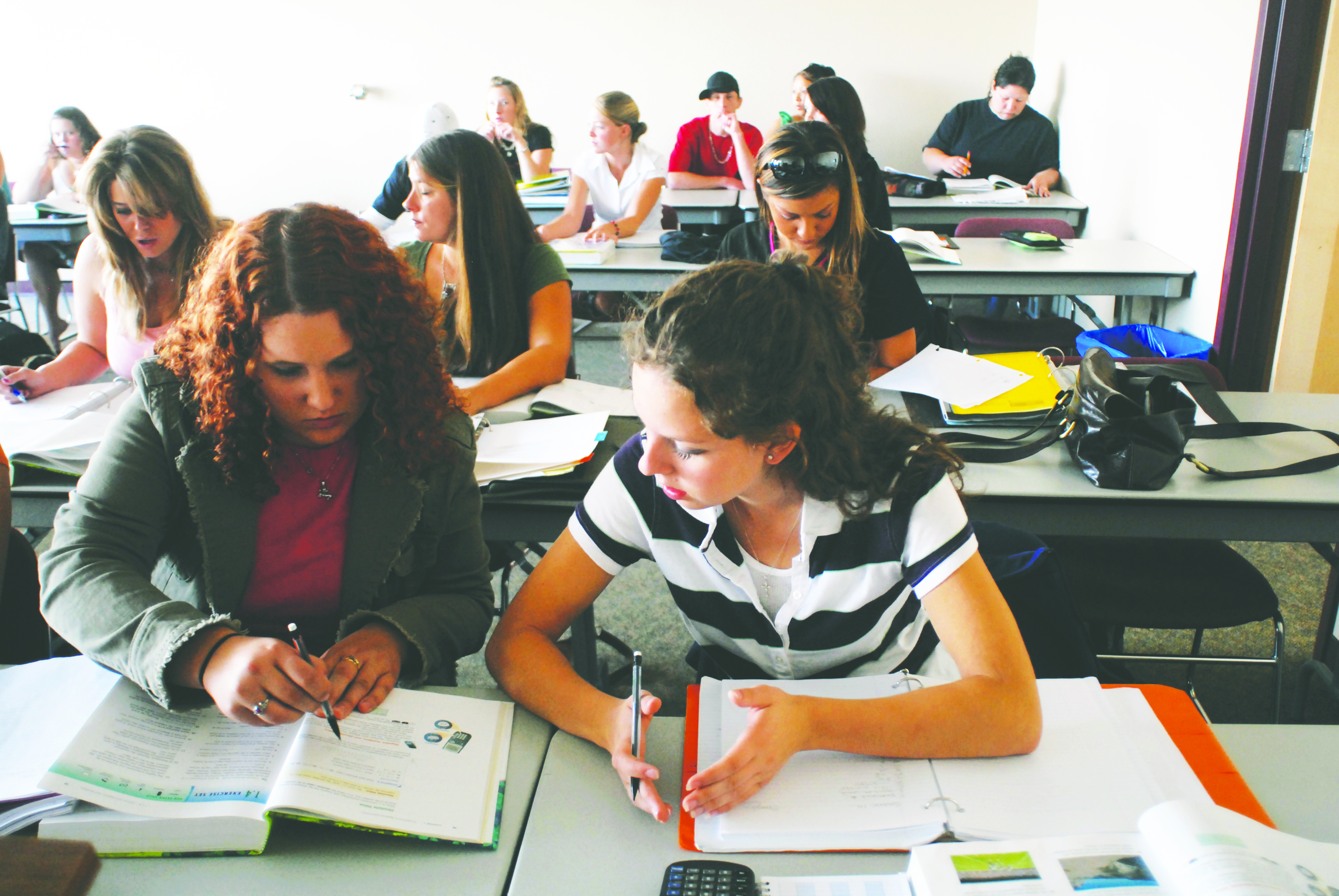Continuing to broaden its educational opportunities, Flathead Valley Community College will start offering students bachelor of arts degrees from the University of Montana while studying locally.
FVCC recently announced the partnership, hailing it as a win-win for FVCC, UM and local students. The new completion program will allow enrollees to pursue a four-year elementary education degree from Kalispell, and the transition will be seamless, according to FVCC’s president.
“This partnership provides members of our community a new affordable opportunity to pursue their dreams of becoming teachers while still balancing family and work,” said FVCC president Jane Karas. “We appreciate this collaboration with the University of Montana and the opportunities it will provide Northwest Montanans.”
The deadline to apply for the program is 5 p.m., Aug. 7. Those interested in applying for admission in fall 2015 need to apply by Feb. 15, 2015.
The new program arrives on the eve of another school year at the college and buoys its ongoing effort to accommodate its diverse student body. A new block schedule system is being offered for those studying chemistry and biology. Instead of having classes sporadically throughout the day, students can set up a schedule of grouped classes in certain timeframes to help those who are working or raising a family.
“We know students still want to be able to work while going to school but it’s hard if you have to a have one class at 8 a.m. and then one at 4 p.m.,” Karas said.
Now those students can take their classes in blocks, whether it’s early in the morning, at mid-day or in the later afternoon or evening.
“If it seems like it’s working we’ll try to do more and more programs,” Karas said. “We’re really looking at new ways and new strategies to help our students be more successful.”
The fall semester begins Aug. 28 at FVCC.
Karas said she is anxious to see the launch of the new four-year completion program and she would like to see more similar opportunities.
“We’re hoping to expand this to some other programs that we don’t have,” she said.
The new program comes in response to a community assessment that determined the level of interest for bachelor degree options at FVCC. The survey identified a need for more graduates with degrees in business, accounting, education and information technology. Health care degrees were also identified as a need in the Flathead Valley, and Karas said the school’s nursing program will be expanding with more associate science and practical nursing opportunities.
Students who have completed the first two years of study in elementary education at FVCC will be eligible to apply for admission into the fall program. The program also is designed to allow in-district FVCC students to complete their first two years of college at FVCC’s in-district tuition rates and then transfer those credits to UM and complete their bachelor’s degrees in elementary education, all on the FVCC campus.
FVCC already offers a similar transition program through a partnership with the University of Great Falls. UGF has operated a distance learning program since 1975 and at one time had more than 30 sites offering cooperative learning programs. The partnership with FVCC began in 1975, and it’s UGF’s only remaining satellite program. The university offers the second two years of a four-year degree in criminal justice, elementary and secondary education, paralegal and psychology. Many of the classes are held on FVCC’s campus, including hybrid classes that are partially online.
Since 2000, more than 235 students have earned bachelor’s degrees from UGF at FVCC, according to UGF.
As another school year approaches, Karas predicts enrollments will continue to slightly dip as the economy recovers.
Last fall, FVCC’s headcount was 2,216 students, according to school officials. It was 179 students fewer than the previous year, but remained above the pre-recession average of 2,024 between 2003-2008.
Karas said she expects it to remain above the pre-recession level.
Summer enrollments were down at the college, too, and Karas pointed to the loss of summer Pell grants, which she said she hopes Congress will re-initiate as a way to keep students engaged in their education.
“Finding new ways to keep them connected through the summer is great,” she said. “If they can stay in school it really helps them and they can complete sooner.”
